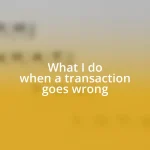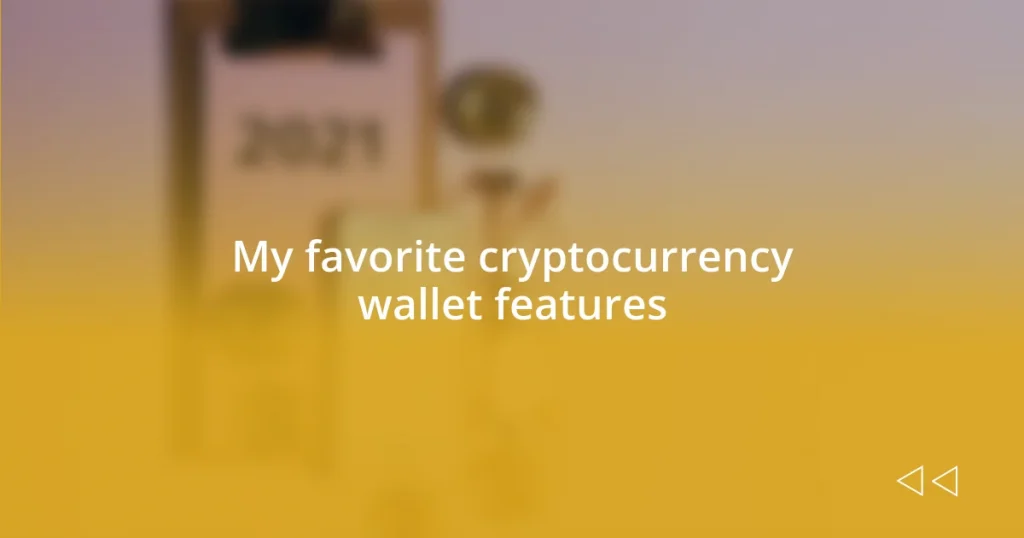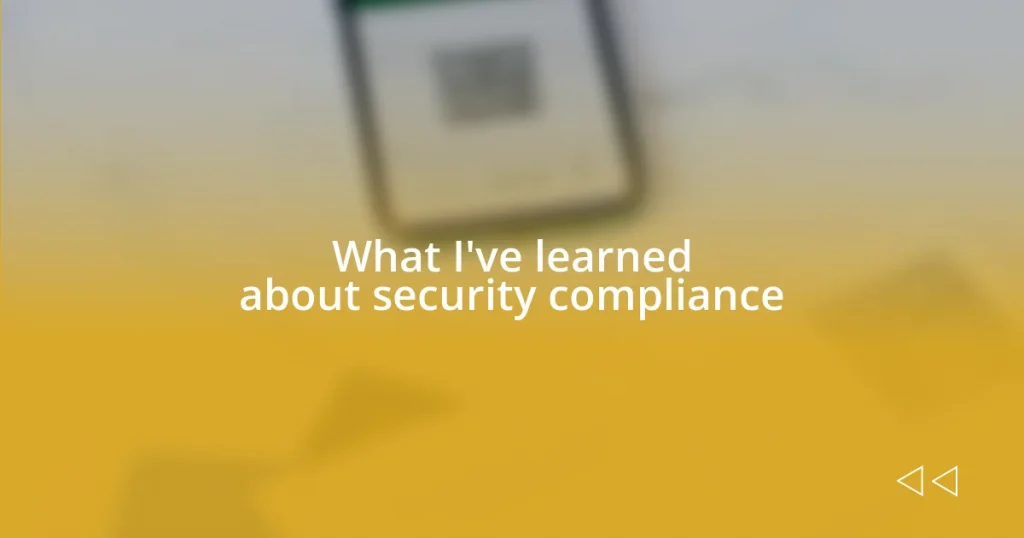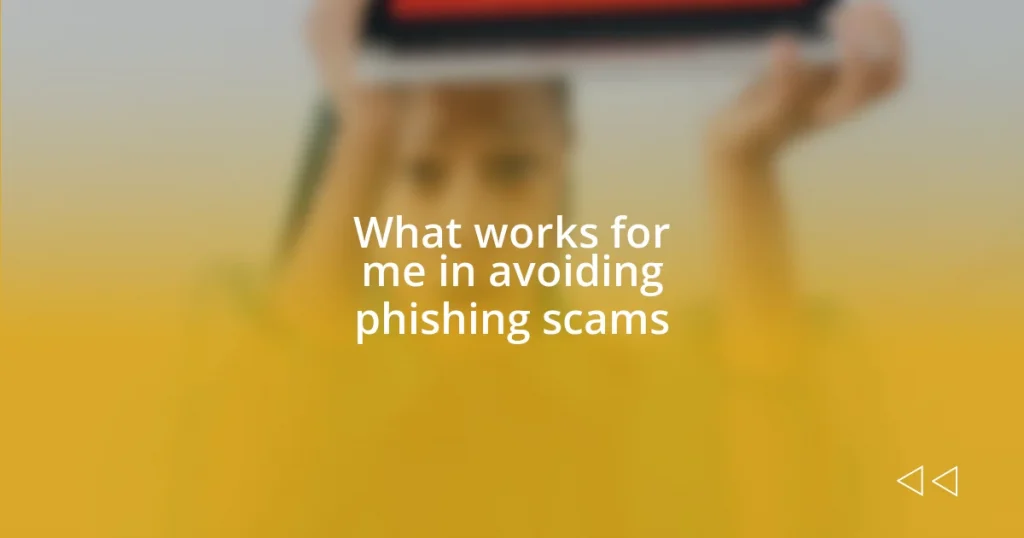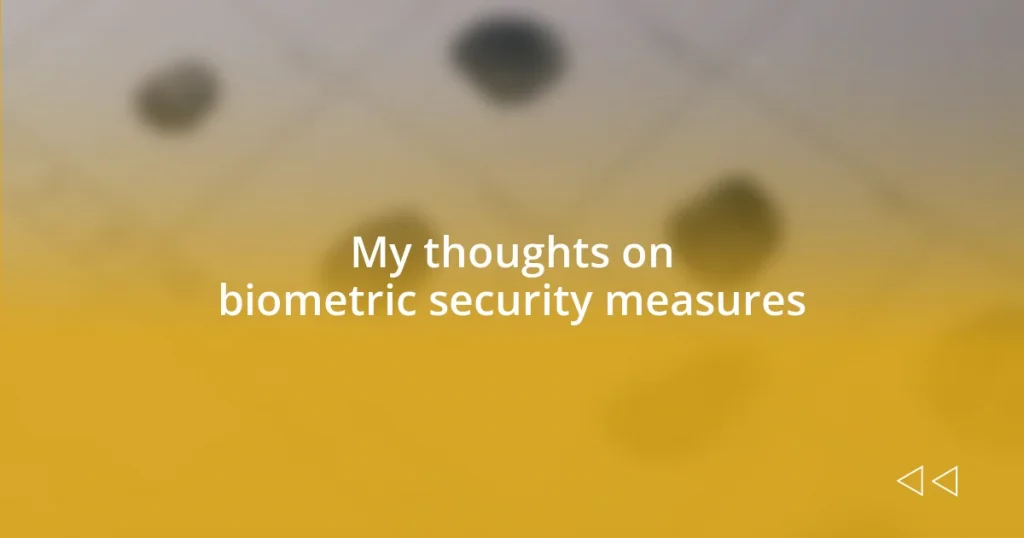Key takeaways:
- Choosing the right cryptocurrency wallet is crucial for securing digital assets and enhancing user experience, focusing on features like security, user interface, and integration with platforms.
- Key security features to consider include two-factor authentication, encryption, multi-signature transactions, and user-friendly recovery options, which provide layers of protection against potential hacks.
- Wallets that support a wide variety of cryptocurrencies, offer low transaction fees, fast execution times, and integrate with other services greatly facilitate a smoother and more efficient trading experience.

Introduction to cryptocurrency wallets
Cryptocurrency wallets are essential tools for managing and securing your digital assets. When I first dipped my toes into the world of cryptocurrencies, I was overwhelmed by the various options available. It made me wonder: how do you choose the right wallet amid so many choices?
Basically, a cryptocurrency wallet serves as a bridge between you and your digital currencies, enabling you to send, receive, and store them safely. I remember my first experience transferring Bitcoin; I felt a rush of excitement mixed with a hint of anxiety. What if I made a mistake? This emotional tug-of-war highlighted just how important it is to have a reliable wallet that not only provides security but also user-friendly features to ease your mind.
There are different types of wallets – hardware, software, and even paper wallets – each with its own pros and cons. Reflecting on my journey, I often ask myself: what features truly matter to me? Is it security, ease of use, or perhaps a seamless integration with other platforms? Understanding these priorities can make all the difference in enhancing your cryptocurrency experience.

Essential wallet features overview
When I think about essential wallet features, security immediately comes to mind. I recall feeling a wave of relief after selecting a wallet that offered two-factor authentication and encryption. Knowing that my investments were safeguarded by multiple layers of protection allowed me to focus on trading and growing my portfolio rather than worrying about potential hacks. Each added layer of security can feel like a comforting shield, especially in such a volatile market.
Another critical feature is user experience. I remember using a wallet with a cluttered interface, which left me frustrated and confused during transactions. It was a lesson learned—intuitive design matters. A simple, clean layout can make a world of difference, especially for beginners juggling multiple cryptocurrencies. The accessibility of your wallet can define how smoothly your overall experience unfolds.
Lastly, the ability to seamlessly integrate with exchanges and other platforms cannot be overstated. I’ve found that wallets offering direct exchange features save me time and hassle. Imagine quickly swapping your coins without needing a third-party site! This convenience can elevate your trading strategy, allowing for faster decisions in the ever-changing crypto landscape.
| Wallet Feature | Description |
|---|---|
| Security | Two-factor authentication and encryption protect your assets. |
| User Experience | A clean, intuitive interface helps users navigate effortlessly. |
| Integration | Direct exchange capabilities streamline trading processes. |

Security features to consider
Security is paramount when selecting a cryptocurrency wallet, and I’ve learned this through some vivid experiences. One of the first wallets I used lacked robust security features, and after a nerve-wracking period, I faced some unexpected setbacks. It taught me that having multi-signature support, which requires multiple private keys to authorize transactions, adds an additional layer of safety. Now, I seek wallets that incorporate strong cryptographic protocols and offer features like a recovery phrase to safeguard my investments.
When examining security features, consider these essential elements:
-
Two-Factor Authentication (2FA): This adds an extra layer of verification by requiring a second form of identification, reducing the risk of unauthorized access.
-
Encryption: Strong encryption protects stored information, ensuring that even if someone gains access to your device, your assets remain secure.
-
Multi-signature Transactions: Requiring more than one key to authorize transactions enhances security and ensures collaborative access for shared accounts.
-
Recovery Options: Having a clear and user-friendly recovery process for lost passwords or devices can be invaluable in regaining access to your wallet.
Reflecting on my journey selecting a secure wallet was like navigating a maze at times. Each feature I prioritize seems to unravel a little more of that maze. I remember the first time I set up a two-factor authentication method; it was simple yet provided me with immense peace of mind. Engaging with these security features isn’t just about protection; it’s about enhancing the overall experience, allowing me to focus on my investment rather than be preoccupied with the potential pitfalls of digital currency management.

Supported cryptocurrencies and tokens
When it comes to supported cryptocurrencies and tokens, the variety offered can make or break a wallet for many users. I remember when I first started exploring crypto—realizing some wallets limited me to just a handful of choices felt like being handed a menu with only one dish. It could be frustrating, especially when I wanted to experiment with emerging tokens or diversify my portfolio. Thus, a wallet that supports a wide range of cryptocurrencies and tokens not only enhances flexibility but also allows for a richer investing experience.
Moreover, the inclusion of popular tokens like Ethereum and security tokens can seriously influence my decision. I’ve often found myself gravitating towards wallets that not only cater to mainstream coins but also champion the latest trends and innovative projects in the crypto space. For instance, being able to access new tokens right after they launch can provide an edge in trading strategies. Isn’t it exciting to think of having a front-row seat to potential breakout assets?
The ability to manage multiple tokens efficiently is also paramount. I remember juggling my investments across different wallets, and the confusion was downright overwhelming. It was only when I settled on a wallet with broad token support that I truly felt in control. This capability not only simplifies transactions but can also elevate my overall strategy, as I can quickly respond to market changes, whether it’s capitalizing on a sudden price surge or reallocating assets in a downturn.

Transaction fees and speeds
Transaction fees can significantly affect how I approach trading and investing in cryptocurrency. When I first started, I didn’t fully grasp how quickly these fees could accumulate, especially during peak network times. I remember biting my nails as I watched fees soar while trying to execute a transaction, which made me wish I had been more strategic with my timing. Now, I actively seek wallets that display fee estimates upfront, showing me the best times to trade, thus allowing me to maximize my investments.
Speed is another critical factor for me. I recall a time when I was eager to jump on an emerging opportunity, only to experience frustrating delays because of slow transaction times. It’s like being at the starting line of a race, only to be held back by a faulty gate. Therefore, I gravitate towards wallets that not only promise swift transactions but also have a reputation for reliability. Knowing that my trades can be executed quickly offers a level of confidence that every investor needs.
Ultimately, the balance of transaction fees and speeds shapes my experience in the crypto space. I’ve learned that a good wallet doesn’t just provide one or the other; it harmonizes both aspects so I can navigate the market with ease. Imagine standing at the crossroads of decisions, fully equipped with low fees and quick execution—how much more empowering that feels as an investor!

Integration with other services
I’ve come to appreciate how important integration with other services is in enhancing the functionality of a cryptocurrency wallet. When I first started, I was frustrated by the lack of connectivity between my wallet and exchanges or trading platforms. I can vividly remember missing out on a fantastic trading opportunity simply because I had to manually transfer my assets between platforms. Now, I actively look for wallets that seamlessly integrate with various exchanges, allowing me to execute trades on the fly without the hassle of transferring funds.
Additionally, having access to decentralized finance (DeFi) services right from my wallet is a game-changer. I once dived into yield farming, but the process felt clunky on separate platforms. The moment I discovered how an integrated wallet simplified those transactions, it felt like unlocking a whole new level in my investment journey. Wouldn’t it be great to have everything in one place—wallet, trading, and DeFi services all streamlined? That kind of connectivity transforms my experience, making it smoother and more enjoyable.
Integration with other services doesn’t just save time; it opens up a world of opportunities to maximize my investments. For example, some wallets allow me to link directly to tax software or portfolio trackers, which make tax season a lot less stressful. I remember the chaos of preparing my crypto taxes without those tools—what a nightmare! Now, the ability to have everything interconnected means I can make smarter investment decisions while staying organized, laying a solid foundation for my financial strategy.





